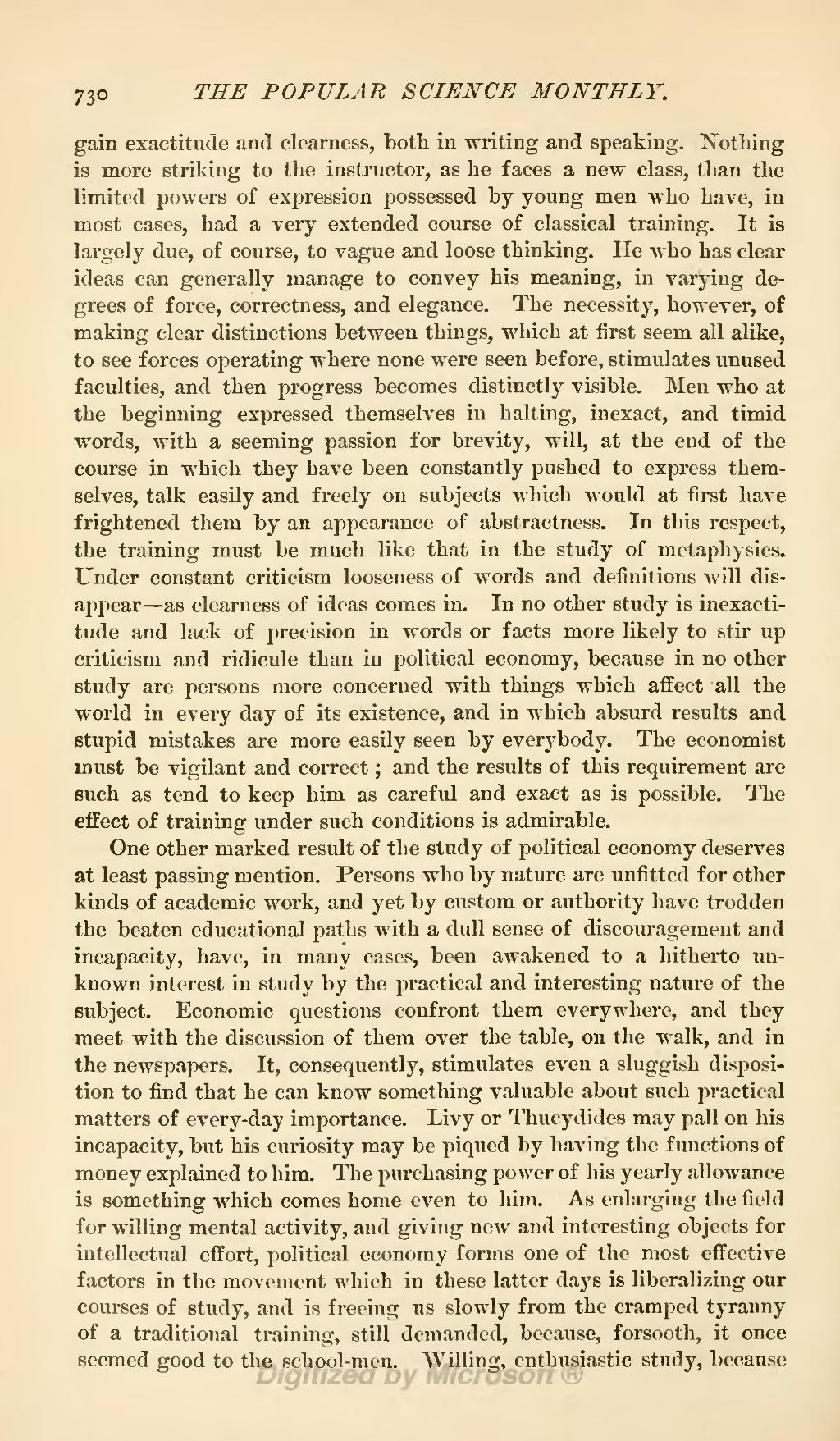gain exactitude and clearness, both in writing and speaking. Nothing is more striking to the instructor, as he faces a new class, than the limited powers of expression possessed by young men who have, in most cases, had a very extended course of classical training. It is largely due, of course, to vague and loose thinking. He who has clear ideas can generally manage to convey his meaning, in varying degrees of force, correctness, and elegance. The necessity, however, of making clear distinctions between things, which at first seem all alike, to see forces operating where none were seen before, stimulates unused faculties, and then progress becomes distinctly visible. Men who at the beginning expressed themselves in halting, inexact, and timid words, with a seeming passion for brevity, will, at the end of the course in which they have been constantly pushed to express themselves, talk easily and freely on subjects which would at first have frightened them by an appearance of abstractness. In this respect, the training must be much like that in the study of metaphysics. Under constant criticism looseness of words and definitions will disappear—as clearness of ideas comes in. In no other study is inexactitude and lack of precision in words or facts more likely to stir up criticism and ridicule than in political economy, because in no other study are persons more concerned with things which affect all the world in every day of its existence, and in which absurd results and stupid mistakes are more easily seen by everybody. The economist must be vigilant and correct; and the results of this requirement are such as tend to keep him as careful and exact as is possible. The effect of training under such conditions is admirable.
One other marked result of the study of political economy deserves at least passing mention. Persons who by nature are unfitted for other kinds of academic work, and yet by custom or authority have trodden the beaten educational paths with a dull sense of discouragement and incapacity, have, in many cases, been awakened to a hitherto unknown interest in study by the practical and interesting nature of the subject. Economic questions confront them everywhere, and they meet with the discussion of them over the table, on the walk, and in the newspapers. It, consequently, stimulates even a sluggish disposition to find that he can know something valuable about such practical matters of every-day importance. Livy or Thucydides may pall on his incapacity, but his curiosity may be piqued by having the functions of money explained to him. The purchasing power of his yearly allowance is something which comes home even to him. As enlarging the field for willing mental activity, and giving new and interesting objects for intellectual effort, political economy forms one of the most effective factors in the movement which in these latter days is liberalizing our courses of study, and is freeing us slowly from the cramped tyranny of a traditional training, still demanded, because, forsooth, it once seemed good to the school-men. Willing, enthusiastic study, because

